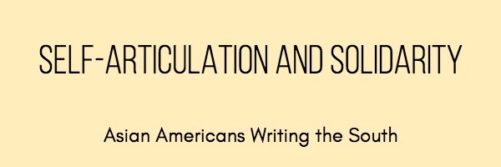by Marci Calabretta Cancio-Bello
In early September, I spent over two weeks obsessively refreshing webpages, tracking the progress of three separate hurricanes as they spun red and fierce through the North Atlantic, small white lines predicting the trajectory of each cone of destruction. Harvey. Irma. Maria. Texas. Florida. Puerto Rico.
For a girl raised in rural upstate New York, I have become quite good at hurricane prep. Purchase bottled water and non-perishable foods at the first sign of worry. Check the hurricane’s path. Put small, important objects in plastic Ziploc bags in a safe or large appliance off the ground, in case of flooding. Make space indoors for outdoor furniture, potted plants, hanging objects, etc. Refresh the National Hurricane Center webpage. If hurricane windows and doors have not been installed, put up the shutters. If no shutters, buy plywood early. Unplug appliances, buy batteries, candles, matches, check the generator, fill multiple gas tanks and cans. Check the hurricane’s progress. Check which nearby evacuation shelters take pets. Check on family members, friends, neighbors, evacuation alerts, escape routes, the webpage. In that order. Refresh. Refresh. Refresh.
What they don’t tell you about hurricane prep is that all of these things cost money. Repairs cost money. Evacuating and returning and missing work cost money. Throwing out everything in the fridge and starting over costs money. Some people cannot afford to evacuate. Preparedness is an unexpected expense. Every candle is lit with a prayer that the monster will turn and spin back out to seas. Irma means “war goddess.” Who thought it was a good idea to give that kind of name to a natural disaster?
My husband and I were in Seattle for a poetry reading the weekend Irma barreled toward the tip of South Florida. We had planned the trip months before, and with the house set in order, we thought we would be two less people to get in the way, to worry about. But we were unprepared for the guilt of not being there, evacuating with my husband’s family to Tampa and then Jacksonville and then Atlanta and back again. We should have stayed to help, to take care of the house, to keep company with the caravan of children stuck in a car for hours at a time, to do something, say something, anything at all.
When we finally were able to fly back to Miami, we found people were kinder, sharing overcrowded coffee shop internet bandwidth, deferring politely to one another at intersections with downed lights instead of trying to cut through a line wrapped twice around the gas station, as if we finally, briefly, understood that both fear and loss are great equalizers reminding us we are merely human. Light shone more persistently through trees made unfamiliar by the devastation to their branches.
This has nothing to do with being Asian in the South, or it has everything to do with being Asian in the South. Sometimes you know how best to prepare. Sometimes you can’t afford it. Sometimes the hurricane turns, and sometimes it doesn’t. Sometimes you can get out and sometimes you can’t. Sometimes you forget you’re the only Asian around because solidarity in the face of death matters. Some days it is impossible to remember what it is like to sit in the dark, with zero bars of cell reception in case of emergency and the wind shaking the very corners of the roof as if to lift them, counting the rations of bottled water for you, your family, your dogs, your friends, lighting a candle and praying the monster turns. Some days it is impossible to forget.
—
Marci Calabretta Cancio-Bello is the author of Hour of the Ox (University of Pittsburgh, 2016), which won the 2015 AWP Donald Hall Prize for Poetry and the 2016 Florida Book Award bronze medal. She has received poetry fellowships from Kundiman, the Knight Foundation, and the American Literary Translators Association. Her work has appeared in Best New Poets, Best Small Fictions, The Georgia Review, The New York Times, and more. She serves as a program coordinator for Miami Book Fair and producer for The Working Poet Radio Show. www.marcicalabretta.com.

